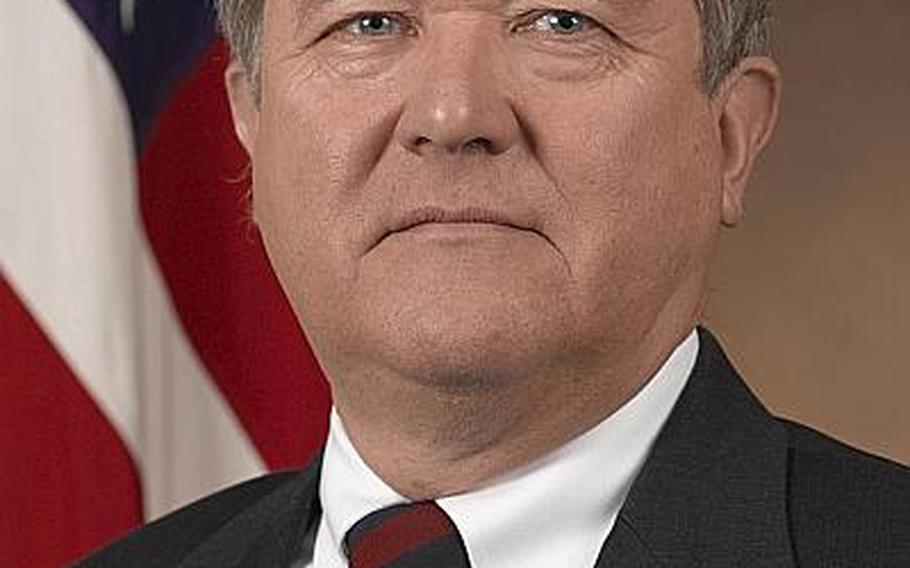Middle East
Billions in US aid to Afghanistan at risk, IG report warns
Stars and Stripes July 30, 2013

John F. Sopko, Special Inspector General for Afghan Reconstruction. (Courtesy SIGAR)
KABUL — Less than 18 months before all foreign combat troops are to leave Afghanistan, there are still billions of U.S. tax dollars at risk of being wasted — or worse, funneled to insurgents and terrorists — if the American government doesn’t do more to ensure reconstruction money is spent properly, according to a quarterly report from the top government watchdog agency in Afghanistan.
“There appears to be a growing gap between the policy objectives of Washington and the reality of achieving them in Afghanistan, especially when the government must hire and oversee contractors to perform its mission,” said Special Inspector General for Afghanistan Reconstruction (SIGAR) John Sopko in a letter introducing the report.
The report reiterated that some U.S. contract money is going to insurgents and terrorists.
The inspector general recommended 43 companies and individuals be suspended or blocked from receiving government contracts because of ties to insurgents or terrorists but the Army rejected each suggestion, the report said.
“I am deeply troubled that the U.S. military can pursue, attack, and even kill terrorists and their supporters, but that some in the U.S. government believe we cannot prevent these same people from receiving a government contract,” Sopko said in his introduction letter. “I feel such a position is not only legally wrong, it is contrary to good public policy and contrary to our national security goals in Afghanistan.”
Army spokesman Matthew Bourke said, “Quite simply, the Army Procurement Fraud Branch did receive and review the 43 recommendations late last year, but the report did not include enough supporting evidence to initiate suspension and debarment under Federal Acquisition Regulations.”
In addition, the inspector general’s office announced it has launched an initiative to examine how money is spent on installation of the final turbine at the Kajaki Dam project. The turbine would provide power to perpetually electricity-starved Kandahar, the cradle of the Taliban and a strategic city for Afghanistan.
The effort to install a third turbine on the key hydroelectricity producer in the volatile province of Helmand has been in the works almost since the outset of the war in 2001 and is still not complete, despite the U.S. spending tens of millions of dollars on the project. It is often pointed to as one of the signature failures of America’s aid program in Afghanistan.
Earlier this year, the U.S. abruptly dropped plans for the U.S. Agency for International Development to complete the work, deciding instead to give $75 million directly to Afghanistan’s national utility to finish the project.
“SIGAR’s prior work has raised concerns about the readiness of the Afghan government to handle direct assistance, which is why we remain concerned about the prospects of success at Kajaki,” Sopko said in his letter.
In a prepared statement, a USAID official said the Afghan national utility, Da Afghanistan Breshna Sherkat (DABS), has proved effective in managing its assets, pointing to a 67 percent increase in payment collection from 2010 to 2012.
“USAID conducted a rigorous financial management assessment of the organization and determined that DABS has the ability to effectively manage the Kajaki Dam project,” Gordon Weynand, acting assistant to the administrator in the Office of Afghanistan and Pakistan Affairs, said in an emailed response to Stripes questions.
Among other findings highlighted in the report:
-- The Defense Department is moving forward with a $771.8 million purchase of aircraft the Afghan National Army cannot operate or maintain.
-- USAID’s main stabilization program has suffered from repeated delays and is failing to meet critical contract objectives.
-- Fuel destined for the U.S. military was illegally held at the border with Uzbekistan because of a dispute with the Afghan Ministry of Finance.
The inspector general’s office also announced the launch of the “SIGAR High-Risk List,” which “will call attention to programs, projects, and practices in Afghanistan that SIGAR finds especially vulnerable to waste, fraud, and abuse.”